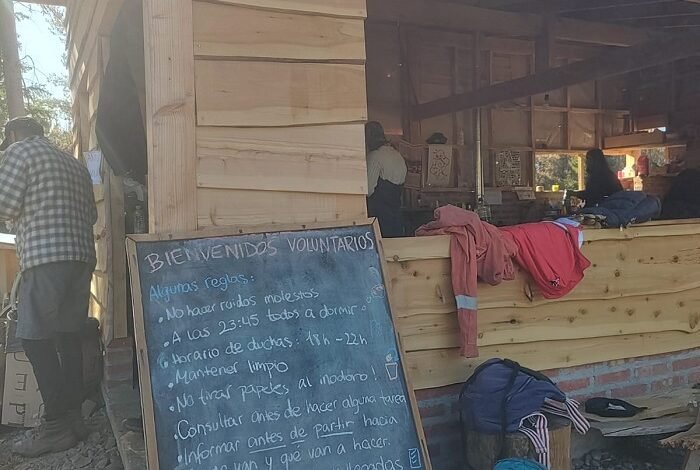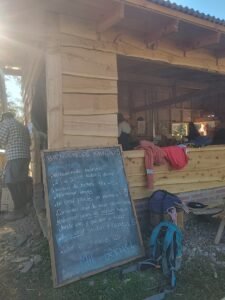

The forest fires that affected the region of El Bolsón and its surroundings sparked a wave of solidarity throughout the country. Among the volunteers who came to help, a group of young people from La Matanza joined the tasks of containment and assistance to the victims.
In February 2025, the region of El Bolsón, in Argentine Patagonia, suffered large-scale forest fires that devastated large areas of native forests and affected numerous local communities. The flames consumed approximately 15,000 hectares, leaving destruction and desolation in their wake.
The most affected areas included places such as Cascada Escondida, Las Perlas del Azul and Mallín Ahogado, where the flames consumed around 3,400 hectares of vegetation. Despite the efforts of the brigade members and volunteers, adverse weather conditions, such as strong winds and high temperatures, made the extinguishing tasks difficult.
The local community showed remarkable solidarity, organizing itself into popular movements to face the emergency and provide support to those affected.
Diario NCO spoke with Juan Fleitas, a 31-year-old young man from the 20 de Junio neighborhood of Isidro Casanova, who shared his testimony about his experience as a volunteer in the South.
“I left Buenos Aires alone, knowing that some friends were in Bariloche, vacationing and building a house on land that a friend bought in the Pilar neighborhood, near the center of Bariloche. My idea was to spend a few days with them and head off to El Bolsón. Two days after my arrival, the fires started in Epuyén, near what is the town of El Bolsón, and immediately the fires broke out in Mallín,” he said.
The advance of the fire and the information spread on social networks prompted his decision to collaborate. “I’m affected by a natural awareness issue, it’s something instantaneous that I barely started seeing on Instagram, in the news I began to notice the apathy of the State. A week later I connected with a group of travelers who were calling for volunteers at a camp called El Parador del Montañés.”
When Juan arrived, the fire was a few kilometers from the inn. The volunteers’ job was to collaborate with the firefighters in monitoring the ashes and preventing new outbreaks. In addition, they assisted the affected neighbors. “We found homes that were totally destroyed where only walls and a floor remained, as well as places where the fire had devastated but the houses were intact. So it was about demolishing and leaving what could be reused, cleaning as much as possible.”
The work group was made up of about 30 people organized into teams, but the magnitude of the tragedy exceeded their capabilities. “Even so, we couldn’t cope. There were almost 200 houses destroyed in the surroundings of Mallín,” explained the young man.
In parallel, they also received and distributed donations in the camp, which at one point was surrounded by flames but managed to be saved.
The State’s negligence
One of the aspects that most impacted the volunteers was the lack of state presence. “In the 10 days I was there, I did not see a group of people who came to give out guidelines from the State, either for donations or to talk to people. This negligence has to do, I think, with a kind of surrender of the territory. We have the idea that, beyond the fact that the fire may have been caused naturally, 70% was caused intentionally. It was an abandonment of the people.”
In this sense, Fleitas added: “None of the people to whom we gave a little help told us that they received help from the mayor or anyone else.” In this context, the young man stressed that the initiative of the volunteers encouraged other neighbors to join the reconstruction.
Juan Fleitas stressed the importance of sharing this experience with his friends from the neighborhood. Three other young people from Matanzas also joined the camp: Ema, Brenda and Nacho, who contributed their efforts to the relief and containment tasks.
The experience left a deep mark on the young man: “I felt very satisfied with the work and the contribution I was able to make,” he said. However, the emotional impact was strong. “It was very shocking to arrive and see an entire forest burned. My goal for this trip was to be able to see that space, to climb the mountain. Arriving and seeing that image of something that I never knew was green, I knew it burned, was sad.”
The physical and mental effort was demanding, but also enriching. Despite this, his work and that of other volunteers show that solidarity can make a difference in the midst of tragedy.
Te Puede Interesar:
https://www.instagram.com/diarioncomatanza
https://facebook.com/diarionco



